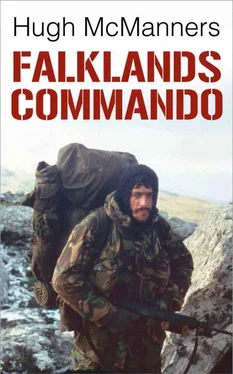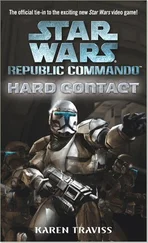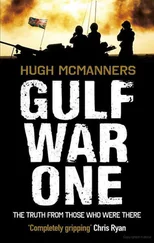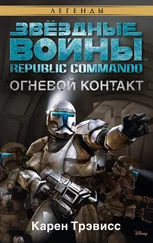Hugh McManners - Falklands Commando
Здесь есть возможность читать онлайн «Hugh McManners - Falklands Commando» весь текст электронной книги совершенно бесплатно (целиком полную версию без сокращений). В некоторых случаях можно слушать аудио, скачать через торрент в формате fb2 и присутствует краткое содержание. Город: London, Год выпуска: 2014, ISBN: 2014, Издательство: Nightstrike Publishing, Жанр: nonf_military, Биографии и Мемуары, на английском языке. Описание произведения, (предисловие) а так же отзывы посетителей доступны на портале библиотеки ЛибКат.
- Название:Falklands Commando
- Автор:
- Издательство:Nightstrike Publishing
- Жанр:
- Год:2014
- Город:London
- ISBN:978-0-992-81540-0
- Рейтинг книги:4 / 5. Голосов: 1
-
Избранное:Добавить в избранное
- Отзывы:
-
Ваша оценка:
- 80
- 1
- 2
- 3
- 4
- 5
Falklands Commando: краткое содержание, описание и аннотация
Предлагаем к чтению аннотацию, описание, краткое содержание или предисловие (зависит от того, что написал сам автор книги «Falklands Commando»). Если вы не нашли необходимую информацию о книге — напишите в комментариях, мы постараемся отыскать её.
Falklands Commando — читать онлайн бесплатно полную книгу (весь текст) целиком
Ниже представлен текст книги, разбитый по страницам. Система сохранения места последней прочитанной страницы, позволяет с удобством читать онлайн бесплатно книгу «Falklands Commando», без необходимости каждый раз заново искать на чём Вы остановились. Поставьте закладку, и сможете в любой момент перейти на страницу, на которой закончили чтение.
Интервал:
Закладка:
The highlight of the Falklands 25 thanniversary was a huge parade on Horse Guards. A simultaneous service of Remembrance broadcast from the War Graves cemetery at San Carlos on East Falkland was projected onto massive screens for us all to see. At the end, we marched down the Mall towards Buckingham Palace, along streets lined with well-wishers.
This was a once-in-a-lifetime experience of national recognition, and of belonging to something unique and very special. It was also oddly timeless.
After we’d marched down the Mall and were standing in three ranks outside Buckingham Palace, I imagined of what it must have been at a big battle like Waterloo. Waiting as always for something to happen (the Red Arrows to fly overhead), we made the timeless sotto voce conversation of soldiers packed shoulder-to-shoulder – mostly of absent friends. In addition to this, my generation of former Commandos discussed the benefits of motorised golf trolleys and the realities of arthritic knees, bad backs, and whether we’d still be around for the 50 thanniversary.
The 30 thanniversary wasn’t quite as spectacular – coinciding as it did with the London Olympics. There were nevertheless reunions, and the funeral of my friend and fellow commando forward observer Peter Geary beside the sea at his wind-swept village in the glens of Antrim. Crammed into the kitchen of his cottage, overlooking Glenarm and its deserted port, Pete’s military friends told impromptu stories of his exploits for Jackie his wife (and Pete’s incredulous family) and for our own catharsis. All ranks were present, from brigadier downwards, but the majority were the soldiers Pete had commanded – commando gunners from his beloved 79 Kirkee Battery. The evening finished with a rendition of 79 Battery’s disgraceful song ‘The Pink Hotel’ (which you can find on YouTube if you are so inclined).
Another 30 threunion was at Royal Marines Poole, where the current 148 Battery hosted former members from as far back in its history as its very beginnings in the Second World War. One of the surviving forward observers from D-Day was there, aided by walking sticks, comparing notes with guys recently returned from Afghanistan. I took up with people I hadn’t seen for thirty years instantly, as if that had been just a week previously. I was glad to see them again in a way that is completely different to any other sort of reunion.
Although there was little talk of war or suffering, that was the backdrop – and justification – for the reunion. Although we veterans were no longer young, fit or strong enough to do the business any more, our still-operational comrades afforded us the same respect as they rightly did themselves. The current 148 Battery is very operational, and has suffered the recent deaths and serious injuries that are part of their heightened state of military capability. For them, operations are on-going – an ever-present likelihood that casts its strange and enervating shadow over life in a front line unit.
But, as the still-serving members of 148 Battery made clear, this strange shadow is the same for us all. Wars are not over when the last shell explodes, or when the last man arrives back home to his strained and thankful family. These are cataclysmic human events of great magnitude and resonance, casting their shadow across many more lives than ever were lost.
But I am always very careful not to describe this shadow as ‘black’, or as being in any way negative. Although it brings suffering, it can also bring life and an intensity of human relations and feelings that do not exist in normal life. For some, this intensity is addictive, creating post-combat problems. This phenomenon has prompted psychological studies into excessive risk-taking by war veterans. And there is also a large and complicated raft of psychological and neurological conditions that the intense stresses and violence of war visits on its survivors.
The strange goodness that exists in war is one of the most basic human contradictions – that amid the degeneracy, we can be our most noble, like Becket’s flowers growing on a dung heap. This quality I see as the natural product of the violence of our evolutionary struggle. It comes from a dark and forgotten land, long ago, and enabled our forebears to prevail over rivals and stronger species. It separates the very best soldiers from the brutal thuggery that characterises ill-trained militia and gangsters.
The difference lies in motivation – those who do it for the tribe, their comrades and the greater good of the nation are immune from moral responsibility. If they do it for themselves in any way, the ‘strange good’ does not apply, and there are very serious personal consequences.
Any slight deviation from the moral values that every good soldier understands instinctively runs the risk of these personal consequences. We understand this, and walk alone with only our consciences to protect us. There is a personal price to be paid by those who do too much and step over the line. Most soldiers have seen this line – even touched it, and seen others cross it. It’s not fair but hardly surprising that even those who have never made the fatal crossing can end up paying a price. But war was never supposed to be fair, as every soldier knows.
This is the dark, personal psychology of combat – in which the joy and relief of returning home can be corrupted into the guilt of having survived; the satisfaction of having done one’s duty turned over the years into nightmares of self-loathing and anger. But there are no absolute causes and effects, as perhaps my ‘theology’ of crossing the line suggests.
Soldiers in combat try to find reasons for the deaths of their friends – to deduce some kind of logic to explain the horror taking place around them. They will say “Sergeant Smith was really careful, but nobody told him that the previous unit had set a pattern by using that same route every day;” or “Pete didn’t camouflage the observation post well enough that day…” There has to be a reason for what happens to each person, ideally with somebody who can be blamed.
But the reality is that, as the Americans say, “Shit happens,” without reason, logic or divine intervention. You can be trained to do your duty well, which makes you safer and wins battles, but can’t protect you as an individual. You can also be trained to cope with constant adversity, cruelly thwarted expectations, and to accept tragedy. But because we are all individuals, this training cannot not inure us to the effects on our mind, character and soul.
Hitherto, medical science has played a very limited role in this. Apart from good military leadership, the work of chaplains is, in my opinion, the most beneficial to the psychological welfare of most troops – whether or not they have any religious beliefs. The most effective psychological counselling is done informally by leaders and by comrades, therapy which very unfortunately stops as soon as soldiers return home. Only the most seriously affected should end up seeing military psychiatrists. Equally unfortunately, this isn’t what happens.
This has very greatly concerned me over the last twenty years. And so, in the culmination of a lot of hard work, I’ve founded and enabled an Oxford University medical research foundation ‘Scars of War’ to bring cutting-edge neuroscience to the post-combat problems of soldiers.
We use very new technology to uncover the effects of extreme, prolonged stress and undiagnosed physical trauma on the brain, the brain-body systems and the mind. This will not show us how our souls and personalities are affected by war, but will explain how body-brain systems are affected, and how these adverse effects may be mitigated by drugs and therapy.
This may in turn help our minds to come to terms with our experiences – which could in turn make it easier for God to heal our souls.
Читать дальшеИнтервал:
Закладка:
Похожие книги на «Falklands Commando»
Представляем Вашему вниманию похожие книги на «Falklands Commando» списком для выбора. Мы отобрали схожую по названию и смыслу литературу в надежде предоставить читателям больше вариантов отыскать новые, интересные, ещё непрочитанные произведения.
Обсуждение, отзывы о книге «Falklands Commando» и просто собственные мнения читателей. Оставьте ваши комментарии, напишите, что Вы думаете о произведении, его смысле или главных героях. Укажите что конкретно понравилось, а что нет, и почему Вы так считаете.












